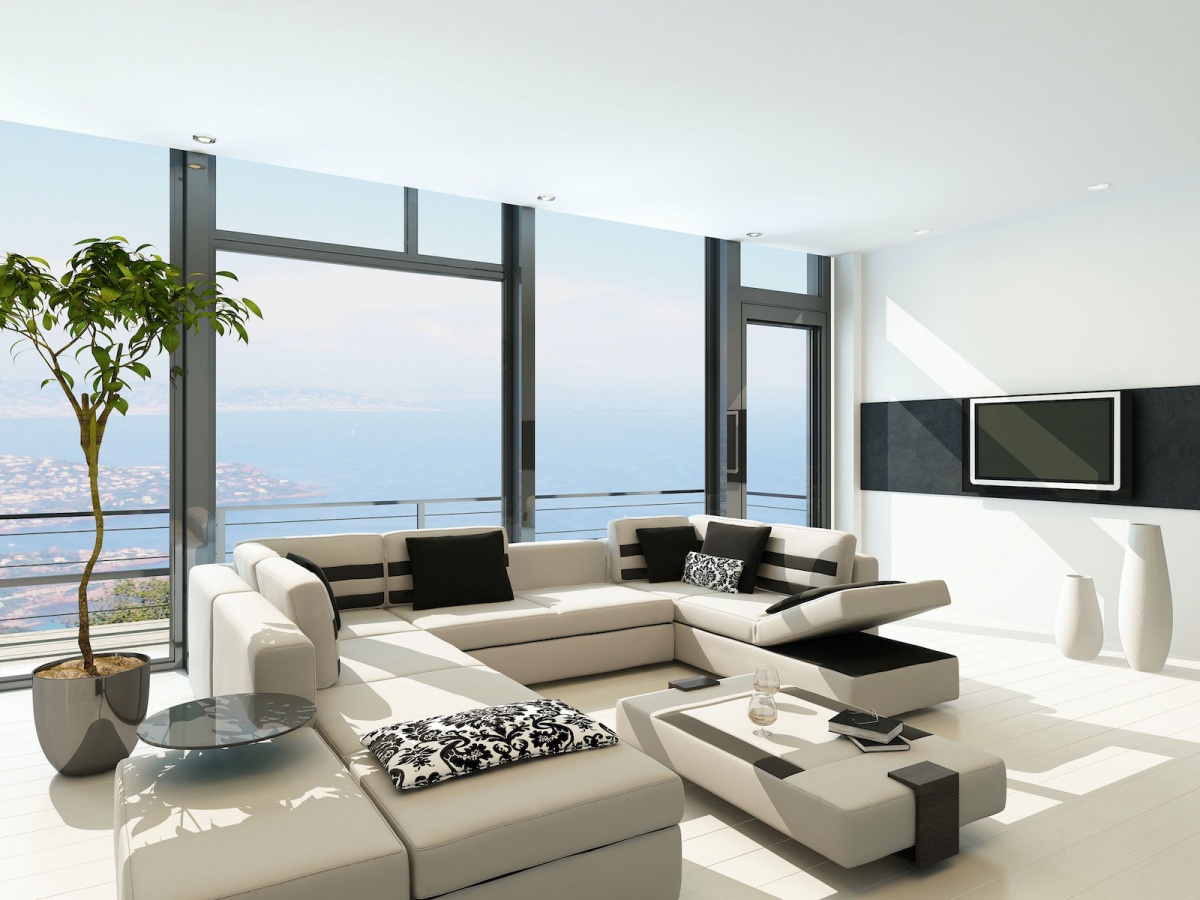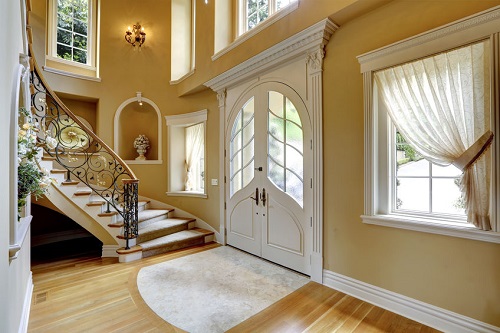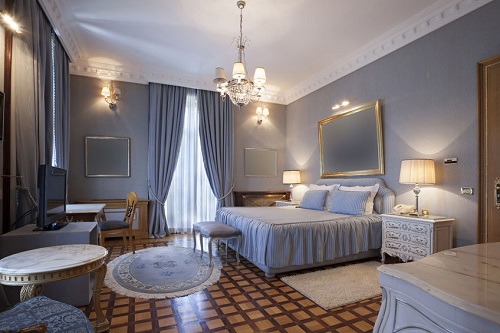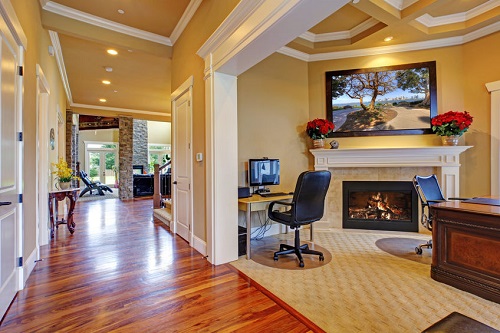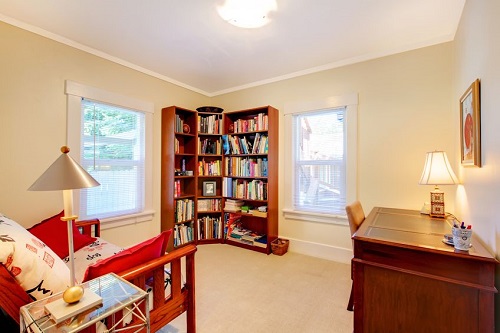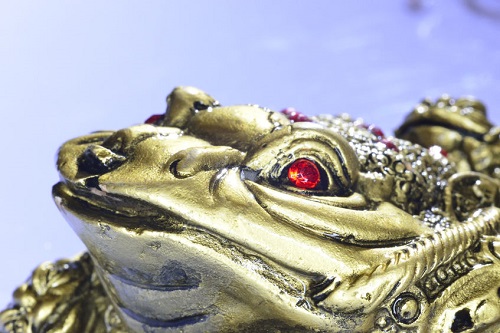Feng Shui is the ancient Chinese art of creating harmony in an environment. The premise is that by following a specific floor plan, by placing objects in your home or office in certain locations, and by using special colors, among other features, you can bring a greater peace and serenity to your space. It is also used to empower the energy of work, love, money, and spiritual well-being.
In this article I am not going to give the history of Feng Shui, but rather show how it is used in practical ways. However, for anyone interested, there are many books and Internet websites available on this beautiful practice that you can explore and thus deepen your understanding of its principles.
A home has an ambience, a feeling about it anyone who enters it will sense, even unconsciously. You have often experienced this when you have visited someone. You are aware instantly of your own emotional reaction to a room. I don’t refer to a critical reaction of the decor, which is just subjective opinion, but instead to something deeper. You have a feeling of gladness or perhaps something melancholy. You might feel irritable or worried. You can also feel that you are in the midst of light and serenity.
Feng Shui describes the causes for each emotion, and a Feng Shui expert can provide remedies if the room has anything discordant or inharmonious going on. Another way more familiar to western people would be to say the room holds a certain vibration, and those “vibes” affect us strongly for good or ill. With Feng Shui, you can ensure a positive outcome. To those who study and master the art, it opens the way to prosperity and well-being at every level of existence.
First, to make the premise more accessible, here are just some features of home interior décor and construction that in Feng Shui would be seen as negative and in need of attention and correction:
One of the most popular illustrations of this lies in what happens when someone enters your house. Do they face a closet door? A mirror? A short hallway leading into another room? Or is there an extended hallway that leads straight to the back door? If this last aspect is the case, then all the energy coming into the house from the front door will whoosh right through the house and out the back door, and if it is valuable energy – or chi, as it is so often called in martial arts and meditation – it never has a chance to enhance your home and add something beneficial. The same thing happens if stairs face the front door – the chi races up or down the staircase and doesn’t have a good path to follow.
The center of your home is the most important area, and from it all the other aspects of chi flow. If the center room is a bathroom or bedroom, it will not help improve the energy or contribute to a positive ambience. Those rooms cannot be the central focus. Energy flow can stagnate.
Setting one side of your bed up tight against a wall prevents sleep from being beneficial. It is also advisable not to place the bed under a window, and to make sure the end of the bed is not facing the door to the room. All of these cause an unhealthy energy to flow through the room. In addition, television in the bedroom disrupts your eventual rest with its constant emission of EMF rays. The ads and programming can alter and reduce essential deep sleep.
What if rooms have doors directly opposite one another? It is considered a setup that encourages conflict among people in the house.
Mirrors facing one another can create a subconscious aggression in their effect, a kind of attack or bombardment on the senses. It can be lovely in short intervals, but as a constant décor, it decreases serenity.
More: 8 Little Tricks to Make Your Home Smell Great
Feng Shui and Your Floor Plan
Advocates of Feng Shui point out that where certain rooms are in your house is very significant. Feng Shui consultants use a Bagua map, which explains how life situations can resonate with a particular compass direction. Each direction has a specific color, Feng Shui element, and area of life that apply:
- North: Work/career path
- South: Fame and reputation
- East: Family and health
- West: Children and creativity
- Northeast: Spiritual growth and self-cultivation
- Southeast: Money and abundance
- Northwest: Helpful people, blessings, and travel
- Southwest: Love and marriage
The idea is to adjust the arrangement of rooms and objects so as to suit the purpose of each compass point for your home, to enable the optimum life experience materially, emotionally, and spiritually. If, for example, you seek money and abundance, you would use specific related elements of Feng Shui to create the necessary environment in the southeast corner of your home.
Of course, such a floor plan is ideal. But what if your floor plan can’t accommodate this in every respect? Feng Shui offers are ways to improve the chi anyway. Here are ten ways to benefit your home environment using Feng Shui:
- Do you have the problem of a long hallway between the front and back doors? If you place objects in the hallway, small tables, decorative objects, a lamp in the ceiling, hang ribbons or other decorations, the energy is prevented from flowing out the back door. It is, as it were, given a change in direction.
- Move your bed into a more Feng Shui position, leaving space on both sides, using a headboard to push the top of the bed against a wall instead of a window, ensuring the foot of the bed does not face the door.
- If you multitask in the same room, create a different space for one of those tasks. For example, if your passion is to write, create an area where that is all you do. Put things in it that signify writing to you, books that matter, excerpts from famous and admired writers, notepads, a table, pens. If you use a laptop, don’t connect to the Internet while you’re in this space. Let it be a well-lighted but quiet place just for you and for doing what you love.
- Hang an object from the ceiling between doors that exactly face one another. Wind chimes are an excellent choice.
- Place fairy lights in a dark space.
- Place things that really matter to you in a prominent position in each room so you can’t help but see them when you enter.
- A lot of windows can reflect energy to the outside. Hang crystals on the window to deflect the energy and send it back into the room.
- In the kitchen, put a mirror over the stove or sink so you can see what is behind you when you are working in those places. This brings an unexpected peace of mind.
- In whichever room of your house represents money, place an object of great value to you, something you treasure.
- Near the entrance to your front door, on the inside, set up an object that represents happiness to you – something that makes you feel good and that suggests prosperity. Perhaps it is a model of a gold frog, a small Buddha, a painting of a rainbow – something that gives you a positive feeling.
Plants are very beneficial Feng Shui in every room. Much more is available concerning the direction a house faces, its overall layout, the external terrain, the presence of a garden or a fountain – each aspect can contribute to “good vibrations.”
More: 10 Reasons to Use Fairy Lights All Year Long
Here is something to test out. Look around your own home and see if there is a space that gives you a negative feeling, one that makes you feel less energy (energy=chi) or makes you feel overwhelmed in some way. Alter it according to the Feng Shui aspects described briefly in this article. Keep things this way a couple of days. Do you notice anything different in how the space begins to feel for you? Let us know in a Comment, for sure!

